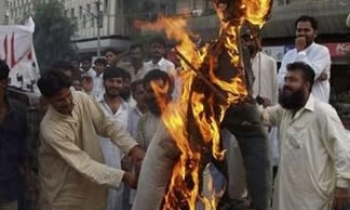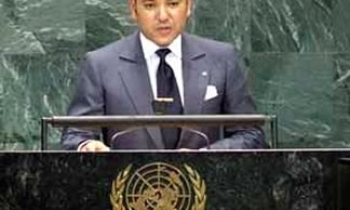Rome, 20 March (AKI) - A hundred years of censorship imposed by monarchies or dictatorships and threats of jail or even death against dissenting journalists, have meant that one the worst enemies of freedom of information in Iran is self-censorship, argues Iranian-Italian journalist Ahmed Rafat in a new book published in Italy this week. "The last spring - the battle for freedom of information in Iran," gathers the testimonies of some of the protagonists of independent journalism in Iran, examines why frank media voices are suppressed, and looks at whether new external factors, such as satellite broadcasting, may lead to change.
"In their attempts to sidestep all the restrictions and physical threats, Iranians have developed an approach which does not allow them to come out of the shallows, but at the same time lets them avoid taking responsibility for what happens," Rafat writes. "An approach divided between Oriental fatalism and Persian cynicism," which makes Iranians always look for a "hero" to carry out great gestures and blame "them", though who exactly the individuals are is never clear.
"My book came out off the printing press the same day in which Akbar Ganji, one of Iran's most famous dissidents, was released from jail," said Rafat, who covers Iranian affairs for Adnkronos International (AKI). "But he has not been completely absolved - there are other trials pending. The world must not allow this great man to end up behind bars again."
Ganji was freed from prison last Friday after having served six years for publishing the news of the murder of five Iranian dissidents by the Iranian secret services.
"If in Arab countries, such as Syria or Saudi Arabia, press freedom does not exist, in Iran what is missing is the "post-press" freedom. One can write freely, but then there are the consequences if one does so," Rafat noted, recalling the suffering of Ganji and the deterioration of his health in prison.
"That is why so many censure themselves, and then report news of Iran quoting foreign media. But providing news using the BBC or CNN is not the same thing as giving it in first person."
Rafat, who lives in Rome, was born in Iran in 1951, on the second floor of the building that housed the newsdesk of the weekly edited by his father, "whose paper was closed because he was not singing from the same hymn sheet as the others."
But even with those closest to him, Rafat adopts a critical approach. "My father was a person who always believes in the freedom of the press, but did not have the force to fight for that" he said, explaining that when his father's paper was closed " he didn't fight it, he decided to do something else, be a diplomat".
Examining the panorama of the Iranian media today, Rafat sees some hope for change in the boom of satellite media providers "because jamming all the satellites is too costly, even for the Iranian government."
"Currently there are 107 radio programmes in Farsi, broadcast via satellite, the airwaves or through the Internet, based outside Iran." More than 50 per cent of these are financed by the governments or the institutions of the countries where they transmit (including France, Germany, Turkey, Japan, China, and the US).
Internet access is still limited: a mere 5-7 percent of Iranians have access. While blogs are important "they cannot replace the press, because they are personal diaries".
Satellite media could bring about a revolution, Rafat believes. Farsi braodcasters in countries where freedom of the press is guaranteed by the Constitution, are playing a very important role in developing a democratic and pluralist culture in Iran."









